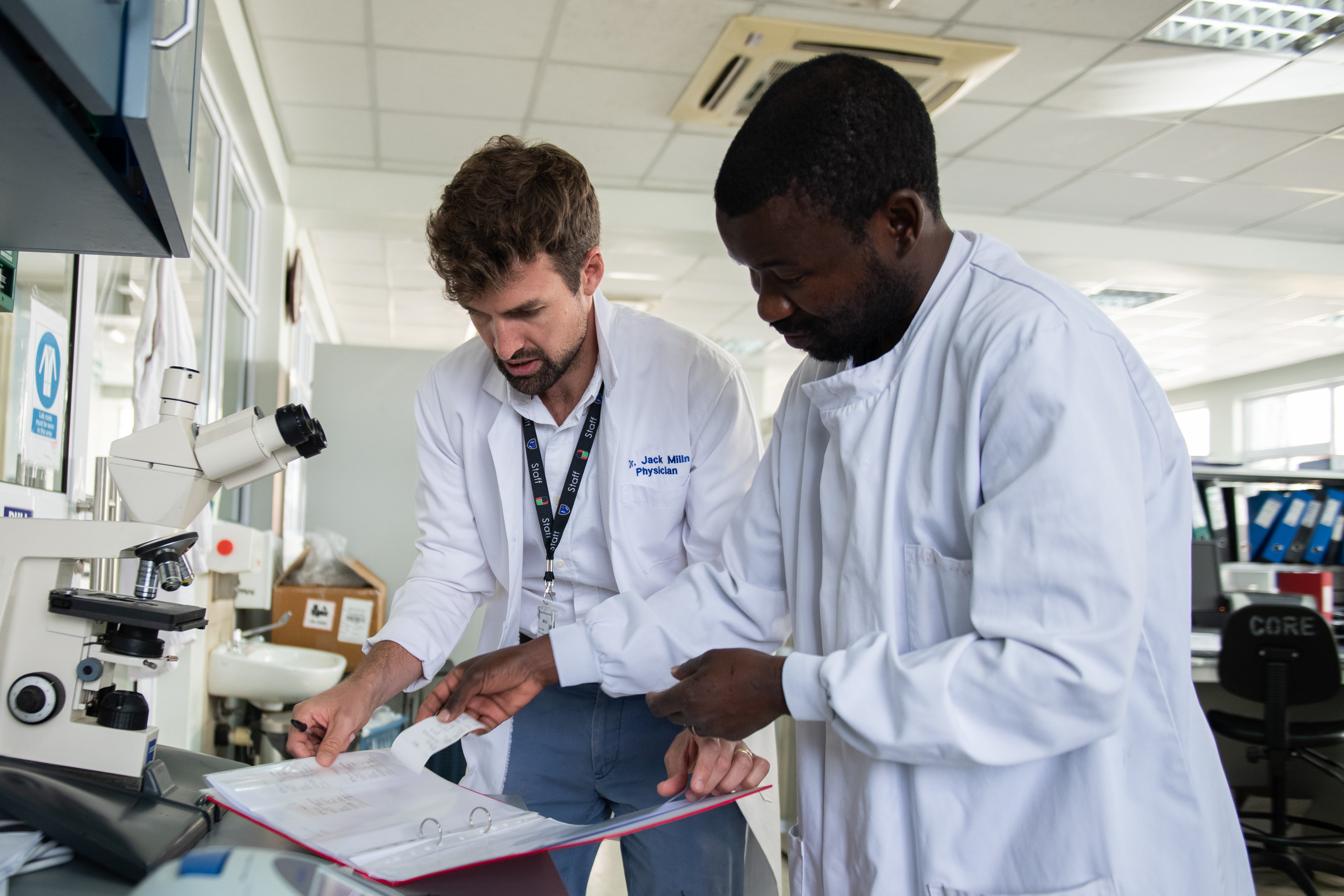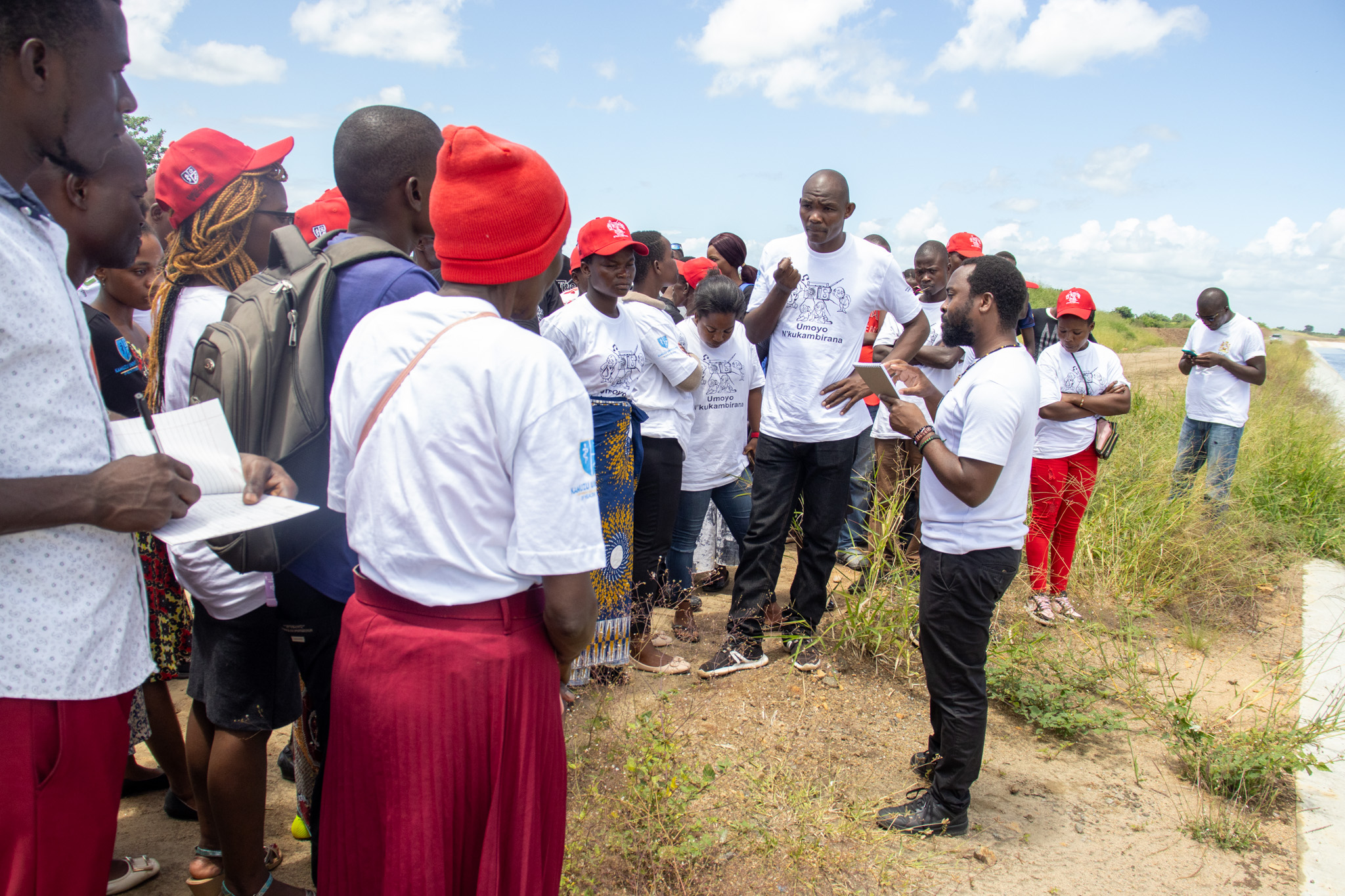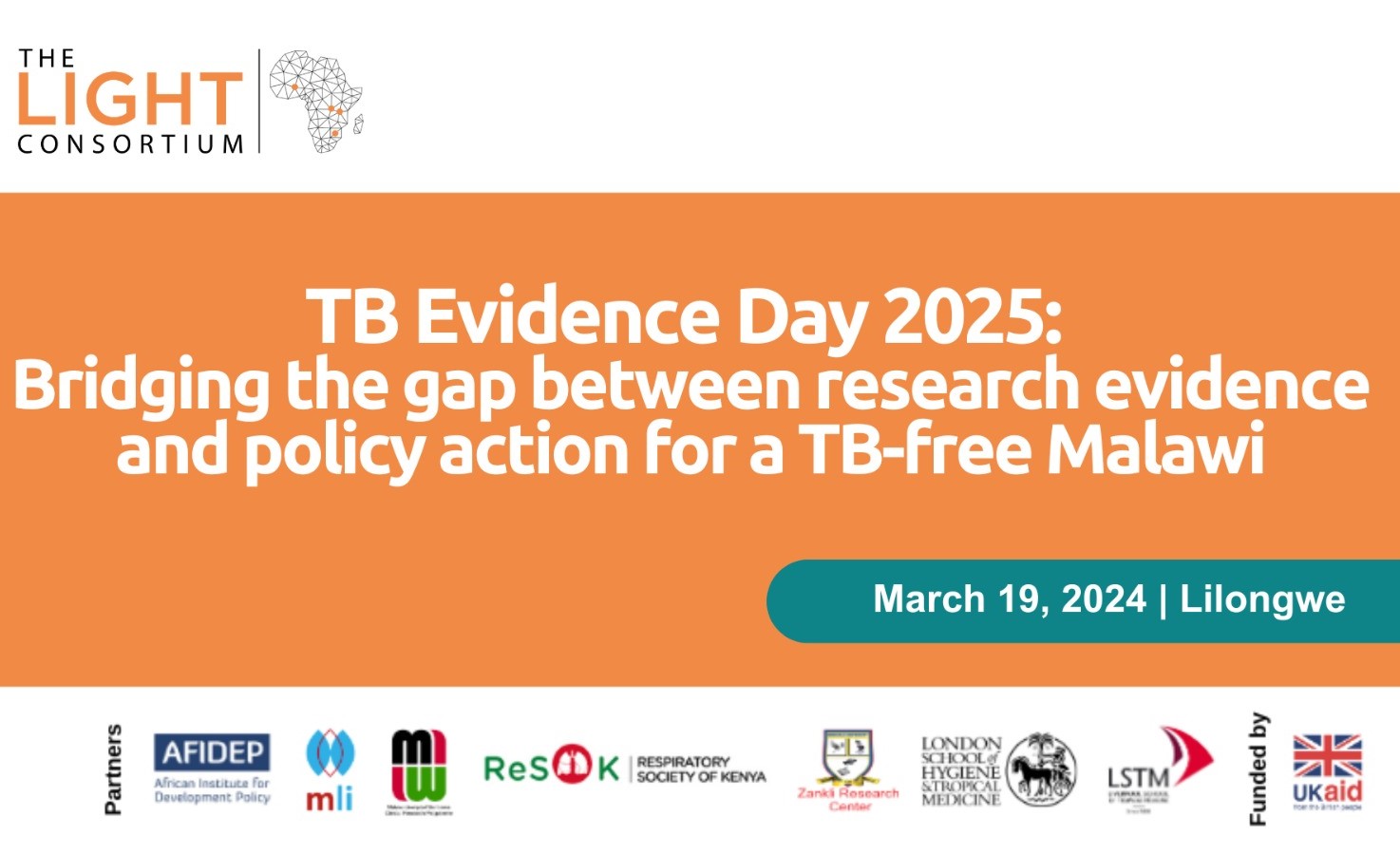These are just some of the big questions The PRONE Study is tackling. This large prospective cohort study is following nearly 1,000 pregnant women in Ndirande and Chikwawa to understand how non-communicable disease (NCDs) like diabetes, hypertension and kidney disease impact pregnancy outcomes in Malawi.
The local picture
In other settings we know that diabetes can cause excessive growth of the baby, causing complications around delivery, and conditions such as hypertension and kidney disease can increase the risk of pre-eclampsia – a serious condition that can be life-threatening for the mother and baby. But is this the case in Malawi? Maybe not, according to the Principal Investigator, Dr Jack Milln:
“Diabetes doesn’t necessarily behave the same way in Malawi as it does in other settings such as Europe. Our early data suggests that the impact on birthweight, for example, may be different in this population. The way we test for diabetes, which involves drinking the sugar load equivalent to 2 or 3 bottles of soda, might not be the most appropriate way to test for a woman living in rural Chikwawa. The PRONE study is helping to address some of these important uncertainties.”
It is clearly vital to generate local data to determine the prevalence of these conditions in Malawi and how they impact pregnant women. The PRONE study is a particularly well characterised cohort and provides a rich resource to explore these questions.
What does PRONE stand for?
Evelyn Msiska, lead Research Nurse in charge of the Ndirande site tells us more:
“PRONE stands for Pregnancy & Recognitions of NCDs Early – because we’re trying to identify these conditions ‘early’ in the pregnancy, at the very first antenatal appointment, but also ‘early’ in these women’s lives. We know that women with NCDs, or related syndromes like GDM, are at risk of full blown NCDs later in life. Perhaps we can use the opportunity of pregnancy to identify them early in life, rather than later when they’ve already developed complications such as stroke or heart failure.”
The PRONE study has made remarkable progress so far. Both study sites are on track with their recruitment targets – so far, a total of 680 women have been recruited to the study, of which 300 have already delivered their babies. Keeping track of the participants is no easy task for the teams, as people’s lives are unpredictable. Some women move to rural areas to help with farming, and others give birth at different facilities. The teams take every opportunity to visit other health centres and even visit women in the community. Interestingly, they often discover that those they struggle to find turn out to be the ones who have had complications, so minimising the loss to follow-up is essential.
How might the PRONE study help to identify which women get pre-eclampsia?
Bridget Kafuwa is the lead Research Nurse operating the Chikwawa site and tells us more about this exciting part of the project:
“Predicting pre-eclampsia early in the pregnancy has always been a challenge. But there are new biomarkers which are showing great potential in other settings. In the PRONE study we are using two point-of-care biomarkers called Placental Growth Factor (PlGF) and Glycosylated fibronectin (GlyFn). This is one of the first times these tests have been studied in the entire African region and we are excited to see the results. Maybe if we can predict pre-eclampsia, we can intervene early in the pregnancy to prevent the devastating emergencies that can happen at the time of delivery.”
The PRONE study is on track to reach its recruitment target of 812 women by June, with the last participants giving birth before Christmas 2025. As more data come in, we’ll get a clearer picture will emerge of how NCDs affect pregnancy in Malawi – and hopefully, we’ll be one step closer to better care for mothers and babies in Malawi. The Principal Investigator wishes to thank the teams for their hard work at Ndirande and Chikwawa, and all the core teams that have contributed to this exciting study.



